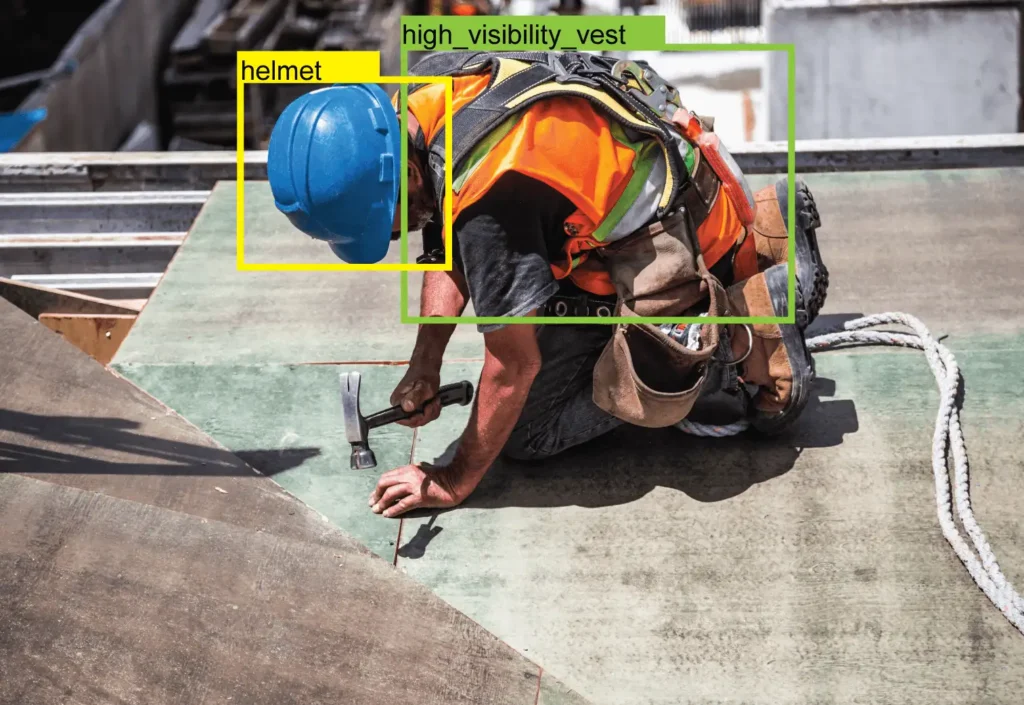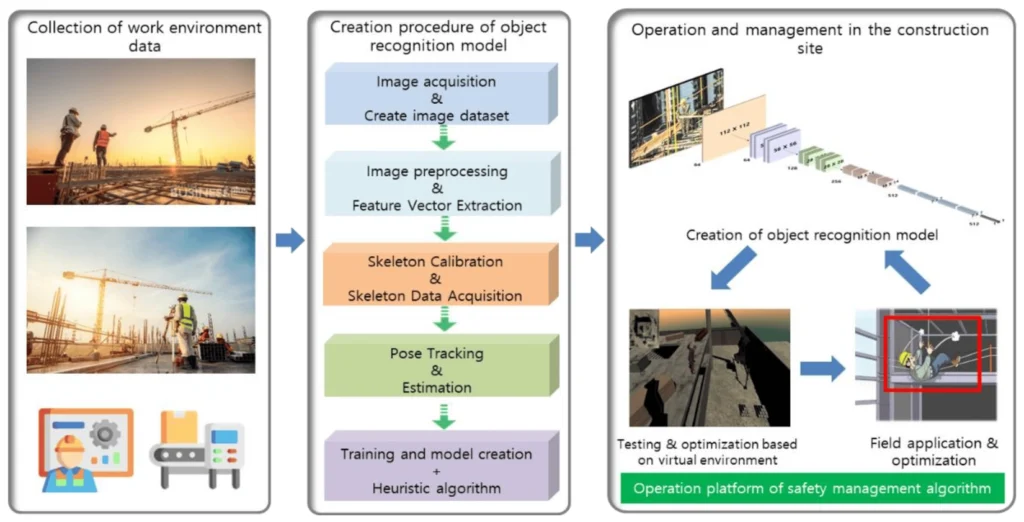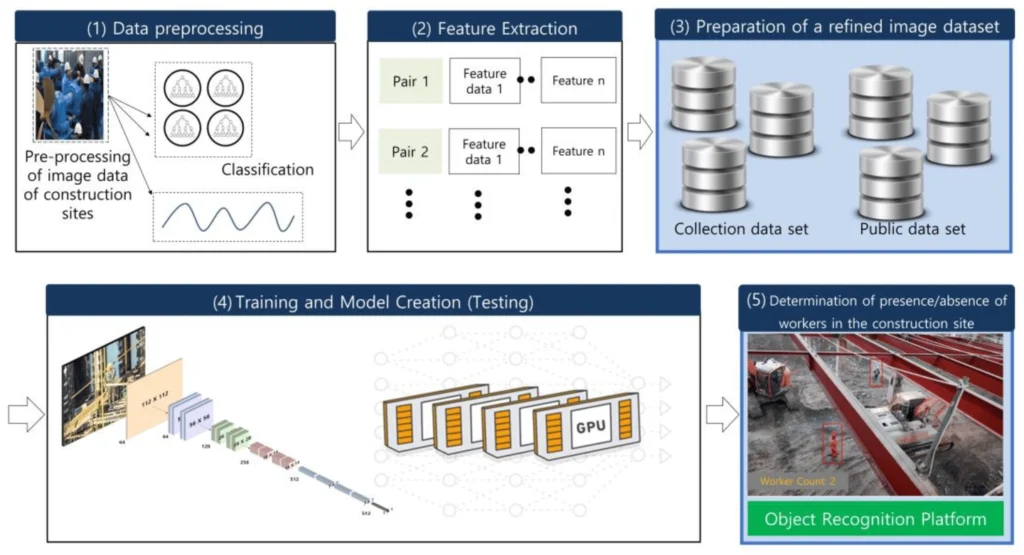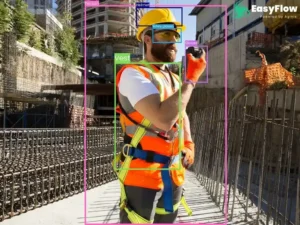EasyFlow has introduced an AI-driven computer vision solution aimed at improving safety on construction sites.
This advanced technology is designed to monitor compliance with safety gear protocols, enhancing worker safety by identifying the absence of essential protective equipment like hardhats, high visibility vests, work goggles, shoes, and even special protection belts that are required for workers working at high altitudes.

Objective
The goal of this pilot study is to evaluate how effectively EasyFlow’s technology can enhance safety measures at high-risk construction sites, ensuring that all workers adhere strictly to safety protocols.
Pilot Study Setup
The pilot was conducted over a three-month period at the sites of leading Lithuanian construction companies JSC Merko statyba and JSC Mitnija.
These companies were chosen for their high-risk activities and willingness to integrate new safety technologies.
Implementation Process
The implementation involved installing necessary cameras and servers to support EasyFlow’s software, which was programmed to detect safety gear (PPE detection) and monitor worker movements.
Training sessions were held for site safety managers and IT staff, focusing on system operation, managing alerts, and optimizing the use of the technology.

Monitoring and Data Collection
The system was set to issue immediate alerts to site managers when a worker was spotted without the required safety gear.
This prompt notification system was essential for enforcing safety measures and enabling quick corrective actions.
All incidents of non-compliance were logged for further analysis, and regular feedback was gathered from users to assess the system’s impact and identify potential improvements.

Evaluation of Results
The effectiveness of the pilot was measured by several key indicators:
- Safety Compliance: There was a noticeable increase in the use of safety gear among workers, as indicated by the decline in non-compliance alerts.
- Incident Reduction: Preliminary data showed a decrease in safety violations and minor accidents, suggesting that the technology was successful in making the workplace safer.
- Response Efficiency: The response time and appropriateness of actions taken in response to safety alerts showed significant improvement, indicating more effective management and oversight.
- User Satisfaction: Feedback from the sites was overwhelmingly positive, with many emphasizing the system’s ease of use and effectiveness in improving safety.
Feedback
The feedback from JSC Merko statyba CEO, Saulius Putrimas, reinforces the positive outlook on AI technology within the sector.
Mr. Putrimas praises the potential of EasyFlow’s solution, stating that “the solution is not fully standardized and finalized. However, it has great potential.”
He acknowledges the current limitations while also recognizing the forward momentum that AI integration is bringing to traditionally conservative fields like construction.
His insights underscore the importance of continuing to refine and adapt these technologies to meet the specific needs of the construction environment.
Conclusion
The pilot study conducted with EasyFlow’s AI-driven computer vision technology at leading Lithuanian construction companies, has demonstrated a clear potential to improve safety measures on construction sites.
As Mr. Jokubauskas CEO of EasyFlow notes, despite well-established legal frameworks and company protocols, workplace accidents remain predominantly driven by human factors. He elaborates that “accidents are never planned and happen in a matter of seconds,” emphasizing the critical need for continuous monitoring systems that can compensate for human oversight.
Mr. Jokubauskas also highlighted the technological advancements in computer vision over the last five years, noting significant improvements in cloud computing capabilities which have made these solutions more accessible and cost-effective.
This evolution means that what was once only affordable for large businesses is now within reach for small and medium-sized enterprises as well. This democratization of technology allows for broader adoption and potentially transformative impacts across the construction industry.
The pilot’s success signals a significant step forward in harnessing technology to enhance safety standards. By addressing human factors proactively, EasyFlow’s AI solution could indeed become a standard feature in construction site management, significantly reducing workplace accidents and enhancing overall safety compliance.
This technological shift is not just an improvement but a necessary evolution in the face of growing industry demands and the inevitable integration of more advanced digital solutions in workplace safety management.
Not Sure How AI Can Help Your Business? Let’s Talk!

Ugnė Daniūnaitė
Business Development Manager
Book a no-obligation free consultation with our expert.


